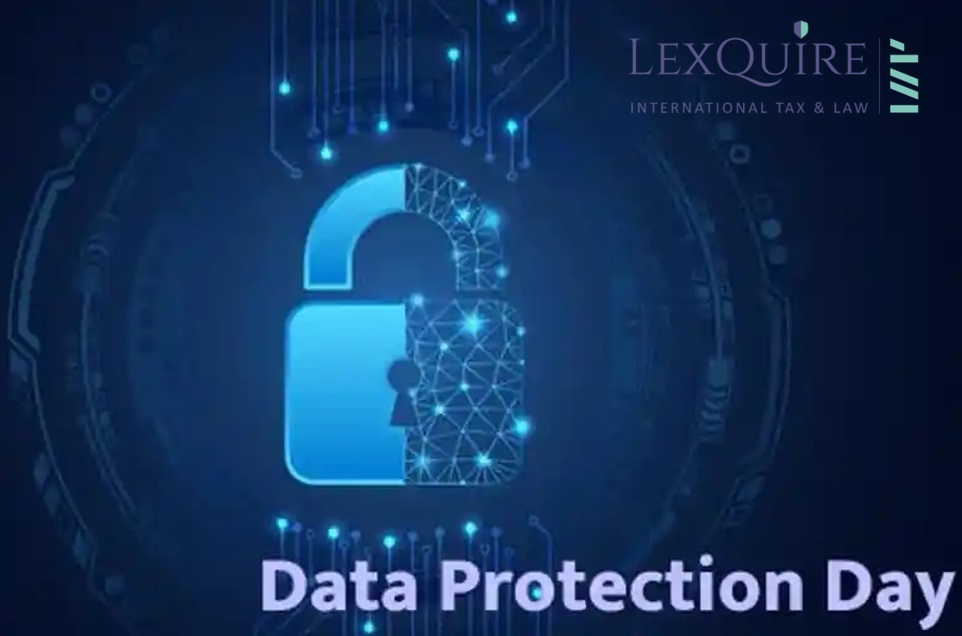Every year, on the 28th of January, world celebrates the World data protection day. It’s an annual celebration of privacy and data protection, that was first introduced by the Council of Europe exactly 18 years ago.
On 26 April 2006 the Council of Europe decided to launch a Data Protection Day to be celebrated each year on 28 January, the date on which the Council of Europe’s data protection convention, known as “Convention 108”, treaty that protects the right to privacy of individuals, taking account of the increasing flow across frontiers of personal data undergoing automatic processing, was opened for signature.
Data Protection Day is now celebrated globally and is called Privacy Day outside Europe, but recently celebrations have extended to span a whole week or even the entire month of January, with the primary aim of raising awareness of privacy and data protection best practices. On this date, governments, parliaments, national data protection bodies and other actors carry out activities to raise awareness about the rights to personal data protection and privacy.
To this day, in order to implement the regulations, regarding the data protection and privacy, as well and efficiently as possible, many organs and bodies were established in the countries and at the international level, for example:
1. EU countries have set up national bodies responsible for protecting personal data in accordance with Article 8(3) of the Charter of Fundamental Rights of the EU.
2. The European Data Protection Board (EDPB) is an independent European body which shall ensure the consistent application of data protection rules throughout the European Union. The EDPB has been established by the General Data Protection Regulation. The EDPB is composed of the representatives of the national data protection authorities of the EU countries and of the European Data Protection Supervisor. The EDPB tasks consist primarily in providing general guidance on key concepts of the GDPR and the Law Enforcement Directive, advising the European Commission on issues related to the protection of personal data and new proposed legislation in the European Union.
3. Regulation 2018/1725 established a European data protection supervisor (EDPS). The EDPS is an independent EU body responsible for monitoring the application of data protection rules within European Institutions and for investigating complaints.
4. The European Commission has appointed a Data Protection Officer who is responsible for monitoring and the application of data protection rules in the European Commission. The data protection officer independently ensures the internal application of data protection rules in cooperation with the European data protection supervisor.
Nowadays it is more important than ever being wary while using modern technologies and internet. What can you do to protect your private information and to be safer while browsing on the internet? Here are seven important and useful tips that you can implement in your everyday life in order to be better protected and safer online:
1. Limit the personal information you share on social media, or when you do want to share certain information online, consider making use of the privacy settings on the website or even on the browser you are using. Sometimes when we share one simple detail online, we don’t realise how much information can be derived from it.
2. Know your privacy rights and how to exercise them in your state or country. Also you can find a legal expert and ask for legal advice, or simply engage a lawyer.
3. Use a privacy-focused browser and browse in incognito or privacy mode.
4. Try to come up with smart passwords meaning long passwords that include numbers, symbols and combined lowercase and uppercase letters.
5. Regularly clear your cookies and cache.
6. Use two-factor authentication where possible, especially on your e-mails.
7. Don’t click on suspicious links, sites and advertisements.
8. Acquire a cyber insurance policy, about which we talked in greater detail in one of our previous posts. Cyber insurance can help with, for example: the return of the lost data; the restoration of software; the protection in case of breach of the confidentiality and privacy; the notifications in case some of the risks are happening, etc.
Knowing how to safeguard your personal information has never been more important than it is today. Between social media, mobile apps, internet-connected devices and the rise of artificial intelligence vast amounts of personal data is being gathered constantly, putting individuals’ privacy at risk.
But, the future nevertheless might seem bright, because modern trends are suggesting that we are becoming more aware of the said dangers and that there are some positive changes regarding this topic, such as: people are demanding greater transparency and are more aware of data privacy and less trusting of organisations, the legislation is in progress to address specific technology and privacy risks (Canada is already drafting legislation to address AI’s unique privacy challenges), the legislative protection is rapidly expanding (The EU’s GDPR legislation led the way in 2018, since then, many countries have followed suit, while some others have legislation pending or under review), etc.
Contact:
Miloš Vuković, Partner at IVVK in cooperation with LexQuire
E-mail: milos.vuckovic@lexquire-ivvk.rs
Marija Tesla, Junior Associate at IVVK in cooperation with LexQuire
E-mail: marija.tesla@ivvk.rs
28/01/2024



